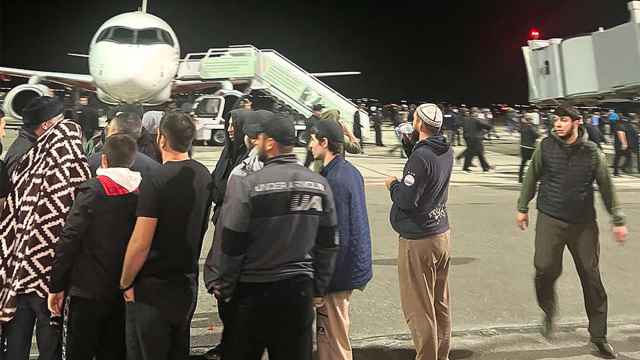A group of independent experts has called for city authorities to provide more details on the project to expand the boundaries of Moscow, with one of them saying Monday that public discussions need to be carried out before it is brought to life.
The opinion of residents and nongovernmental organizations on increasing the city's territory, which is supposed to more than double after incorporating surrounding areas later this year, should be taken into account, but people need more information as details of the project haven't been released officially, said Sergei Simak, a member of the Public Chamber.
The project should also be implemented with the minimum burden on the environment, and for this to happen it should undergo a thorough ecological examination, he said by telephone.
A working group of 20 experts, including from the Russian Academy of Sciences and the Public Chamber, gathered last week to discuss possible consequences that the expansion of Moscow's boundaries could have for the region's environment.
They warned that implementing the project might lead to a deterioration in the ecological situation around Moscow, unless environmental issues are considered.
One possible problem is a deterioration in the traffic situation and a rise in car emissions, as the expansion of the city's territory involves an increase in population, which, in turn, will result in a growing number of vehicles in Moscow, said Simak, who participated in the working group meeting.
The other threat is ruining protected areas, including the so-called green belt — about 40,000 hectares of forest around Moscow, said Arkady Tishkov, director of the geography institute at the Russian Academy of Sciences.
Vera Stepanenko, head of the City Duma's ecological policy committee, said Monday that public discussion among Muscovites and residents of the adjoining lands would be held in August and that city officials are open to any proposals. She also said her committee already holds regular discussions of the ecological side of the project.
Moscow will get an additional 144,000 hectares of land in the southwest starting July 1, compared with its current 107,000 hectares, after President Dmitry Medvedev initiated the project to expand the city boundaries last year.
The adjoining territories could be used to resettle the residents of ***khrushchyovki*** — the ubiquitous concrete housing blocks constructed during the premiership of Soviet leader Nikita Khrushchev — which are to be demolished, Valentina Logunova, deputy head of City Hall's housing policy department, told Komsomolskaya Pravda newspaper last week.
"It's quite possible that they will be offered options beyond the Moscow Ring Road, on territories adjoined to Moscow," Logunova said.
This could be a "rational" option if it doesn't pose a threat to nature and takes into account the interests of those already living on those territories, Simak said.
A Message from The Moscow Times:
Dear readers,
We are facing unprecedented challenges. Russia's Prosecutor General's Office has designated The Moscow Times as an "undesirable" organization, criminalizing our work and putting our staff at risk of prosecution. This follows our earlier unjust labeling as a "foreign agent."
These actions are direct attempts to silence independent journalism in Russia. The authorities claim our work "discredits the decisions of the Russian leadership." We see things differently: we strive to provide accurate, unbiased reporting on Russia.
We, the journalists of The Moscow Times, refuse to be silenced. But to continue our work, we need your help.
Your support, no matter how small, makes a world of difference. If you can, please support us monthly starting from just $2. It's quick to set up, and every contribution makes a significant impact.
By supporting The Moscow Times, you're defending open, independent journalism in the face of repression. Thank you for standing with us.
Remind me later.





